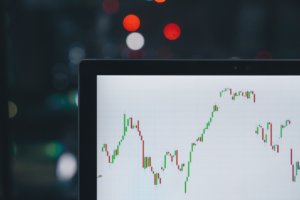6 Tips for finding the best FX brokers – Op Ed
Trader Alex Morgan shares his perspective on how to view the services offered by retail brokerages

By Alex Morgan, retail trader based in the UK
Forex and CFD trading has gotten relatively popular this year since the COVID pandemic has forced more people to stay and work from home. Also, more sport betting professionals moved to forex trading since most sports were not active during the national lockdowns. As a result, recent financial results from the publicly traded FX brokers show that most of them did extremely well in the first half of the year. In this report via Invezz.com, we will look at the five key factors that will help you find the best forex and CFD broker.
Is the broker regulated?
All forex brokers offer their services through the internet. And the internet has many bad actors. As a result, many countries have put in place measures to protect customers from becoming prey of these actors. These measures include having regulators to ensure that all firms play by the rules.
In the United States, the main regulator for the forex and CFD trading industry is the National Futures Association (NFA) and Commodity Futures Trading Commission (CFTC). In the European Union, the overall regulator is European Securities and Markets Authority (ESMA) but the exact rules are enforced by local agencies. In the UK, the Financial Conduct Authority (FCA) is the main regulator. Other popular regulators are CySEC (Cyprus) and ASIC (Australia).
Before you start using a forex broker, it is recommended that you ensure that they are regulated. Importantly, don’t take their word for it. Go to your country’s regulatory website and check whether the company is on the list. In the past, many unscrupulous traders have lost their money by not verifying.
Fees charged
Most forex and CFD brokers don’t charge a fee for their services. That does not mean that their services are offered for free. Instead, most of these firms make their money by the difference between the bid and ask prices, which is known as the spread. While the overall cost per trade is usually very small, it can add up over time.
Therefore, we recommend that you do your research about the spread offered by the broker. You can check this from their fee structure or you can talk with a customer representative about these fees. There are other relatively new brokers who don’t charge a fee but instead charge a monthly subscription. At the same time, other brokers charge a fixed commission per trade.
Available assets
As a trader, you want to have a diversified group of assets that you can trade. If you are a pure currency trader, you want many currency pairs available in your broker. You may also want the broker to provide you with other assets like commodities, indices, and stocks. Having more assets will help you take advantage of opportunities when they arise. Fortunately, most brokers have the assets they provide in their website. Check them out before you open your account.
The brokers history
Many forex brokers are launched every year. Some are genuine, others are not. Since trading is a sensitive industry, we recommend that you select a broker that has been in the industry for years. The benefit of doing this is that it will reduce your probability of using a very new broker that has no customer base to support its growth. Also, new brokers have not accumulated years of history to help you know whether they are credible. Therefore, go for a broker with many years in the industry. Better still, find a broker whose shares are listed in a major exchange. There are many.
Tools provided
Another thing to consider when comparing FX brokers is the number of tools that they provide. Some of these tools are a market performance dashboard, an economic calendar, multiple trading platforms, and quality in-depth analysis. The most common trading platforms are MetaTrader 4 and MetaTrader 5. While you can always find some of these tools for free on the internet, it is always ideal when the broker has them. Other important tools your broker should have are multiple payment methods, faster execution, and the leverage they offer.
Reputation
Finally, you should consider the broker’s reputation. Ideally, you want a broker who is known for treating their customers well. For example, you want one who responds to queries fast. Also, you want a company that offers fast withdrawal and deposit methods. Most importantly, your ideal broker should have a safe platform and have no history of losing customers’ funds.
Conclusion
Being a successful broker is a journey that starts with selecting a good broker. Fortunately, there are many brokers who have been known for offering excellent products that meet the above-mentioned qualities for decades.









